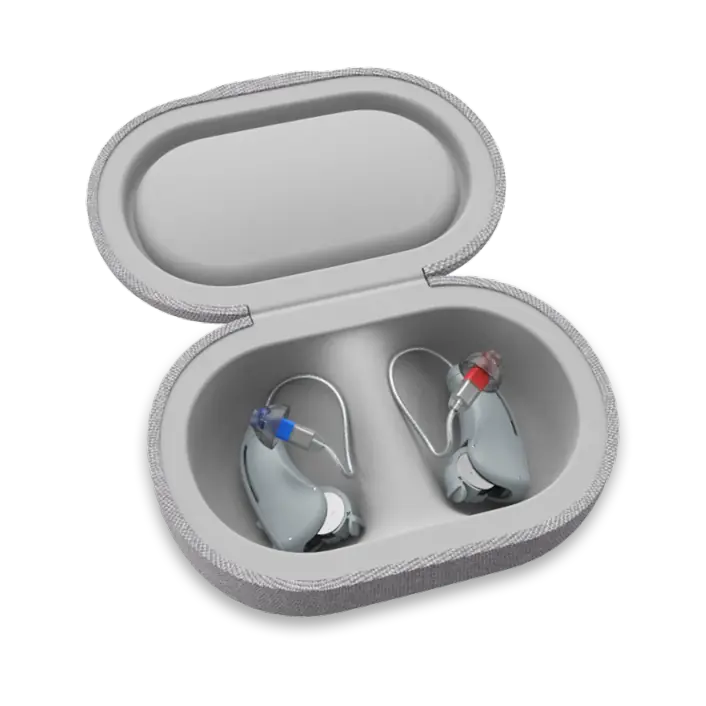Supporting Someone Living with Hearing Loss
Published: August 27, 2021
Updated: December 21, 2021
Hearing loss, an invisible impairment that can cause noticeable difficulties for you and your loved one with hearing loss if it is not understood and handled properly. It’s important to support people living with hearing loss and this article will give you tips on how to do just that.
Normal hearing occurs when a person’s hearing level falls between the range of -10dB to 25dB for adults and -10 to 15dB for children. A normal hearing person should not experience problems hearing, especially in background noise, e.g. restaurants, shopping malls, parks, beaches, etc.
The effects of hearing loss
Adults diagnosed with hearing loss may experience challenges with communication, social interaction, and emotional fulfillment. Individuals living with hearing loss, regardless of their age, can experience self-image problems, depression, and timidity. People might perceive them as being shy and quiet however due to the lack of understanding of their impairment by others and their acceptance of their hearing loss; it causes them not to socially interact often.
During conversations hearing-impaired individuals might just agree to what being has said even though they didn’t hear what was said, this can cause frustration to the hearing impaired individual as well as to their loved ones. Communication breakdown can lead to tension in the household and this affects family members and relationships. Individuals living with hearing loss go through a wide range of experiences and a rollercoaster of emotions. Adults with hearing loss could also mourn the loss of their hearing and go through Kubler Ross’s five stages of grief. These stages are denial and isolation, anger, bargaining, depression, and acceptance. Whether it is a child or adult with a hearing loss, they require support during that time.
Tips to help support someone with hearing loss
Understanding the situation can be helpful to both hearing-impaired individuals, and their loved ones. Here are some ways that can help you to communicate better with individuals living with hearing loss:
- Speak clearly – You should say each word correctly. Use key phrases such as “Now I want to talk about”. This helps the person to know that the topic of conversation has changed.
- Use repetition – When there is a communication breakdown, repeating the sentence or word helps the person to understand.
- Confirmation – Ask the person questions on the topic you discussed to help confirm that they heard you. E.g. If you are talking about the weather, you can ask them questions about the weather.
- Get the attention of the person before starting a conversation.
- Face the person when speaking.
- Use gestures when speaking. E.g. Use hand gestures to demonstrate something or point to something that you are talking about.
- Use facial expressions. E.g. If you are talking about something exciting, have a happy expression on your face.
- Ask the person what you can do to help them understand you better. Remember every hearing-impaired person’s experiences and challenges are unique to them. By asking them what works for them will help you to use specific methods that will help.
- Ensure that the room is well lit – Hearing-impaired individuals often rely on non-verbal communication such as body language, facial expressions, and lipreading to help them understand better and improve communication. Ensure that the room is well lit or bright enough for the person to see the non-verbal signs.
- Try to communicate where there is less background noise – If you can communicate where there is no noise that would be good however that is not always possible. Try to speak in an environment where there is less background noise. E.g. If you are hosting a get-together and you want to talk to someone with a hearing loss then turn the radio/television off or other sources of noise before starting a conversation. You can also ask others to speak softer in the room when you communicate with a person with hearing loss.
Being diagnosed with hearing loss can be an overwhelming experience for your loved one. They can go through a wide range of experiences and a rollercoaster of emotions. By understanding a hearing loss and the impact it has on your loved one, it can help make their journey less overwhelming and more manageable.
Lexie Hearing
Are you, or a loved one, curious to learn more about your hearing health? Lexie Hearing has a free online hearing test you can take from the comfort of your own home. Take the test today to find out if you can benefit from Lexie hearing aids.






